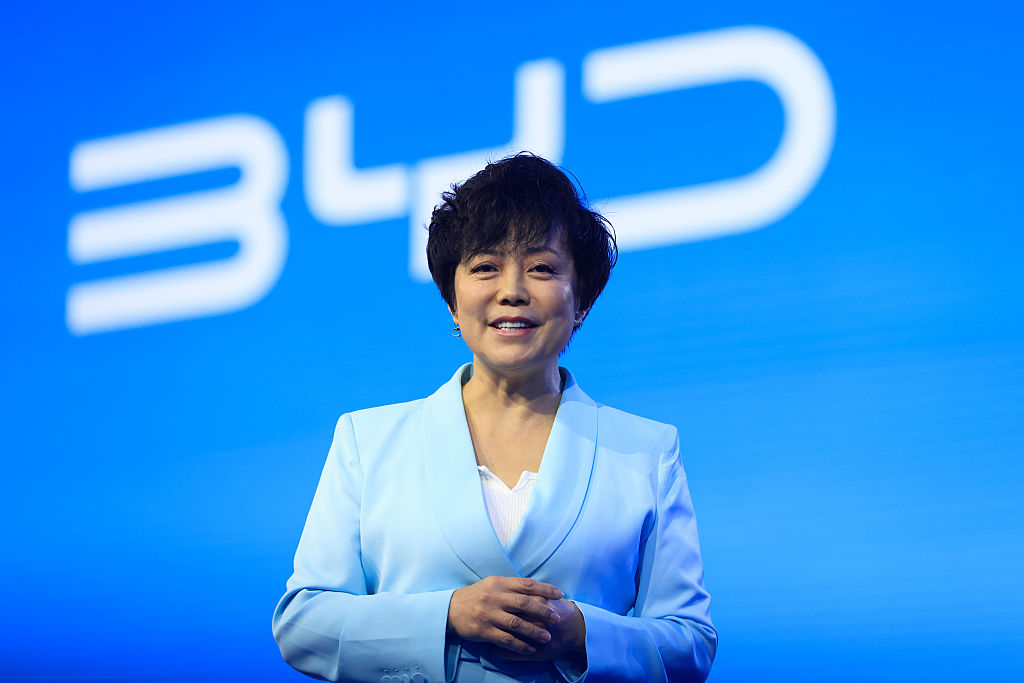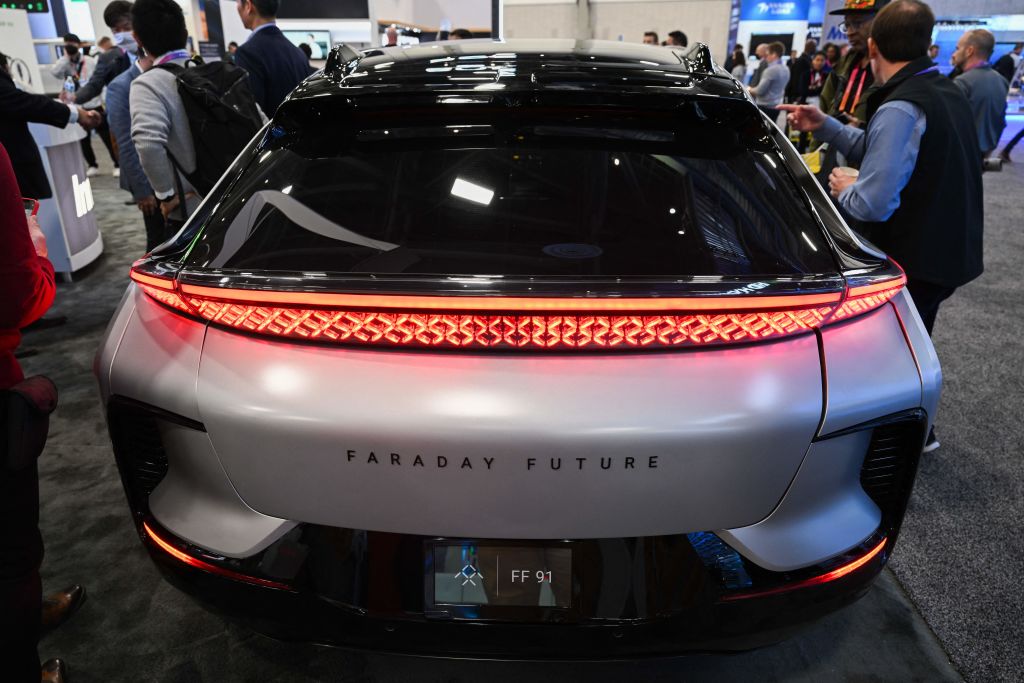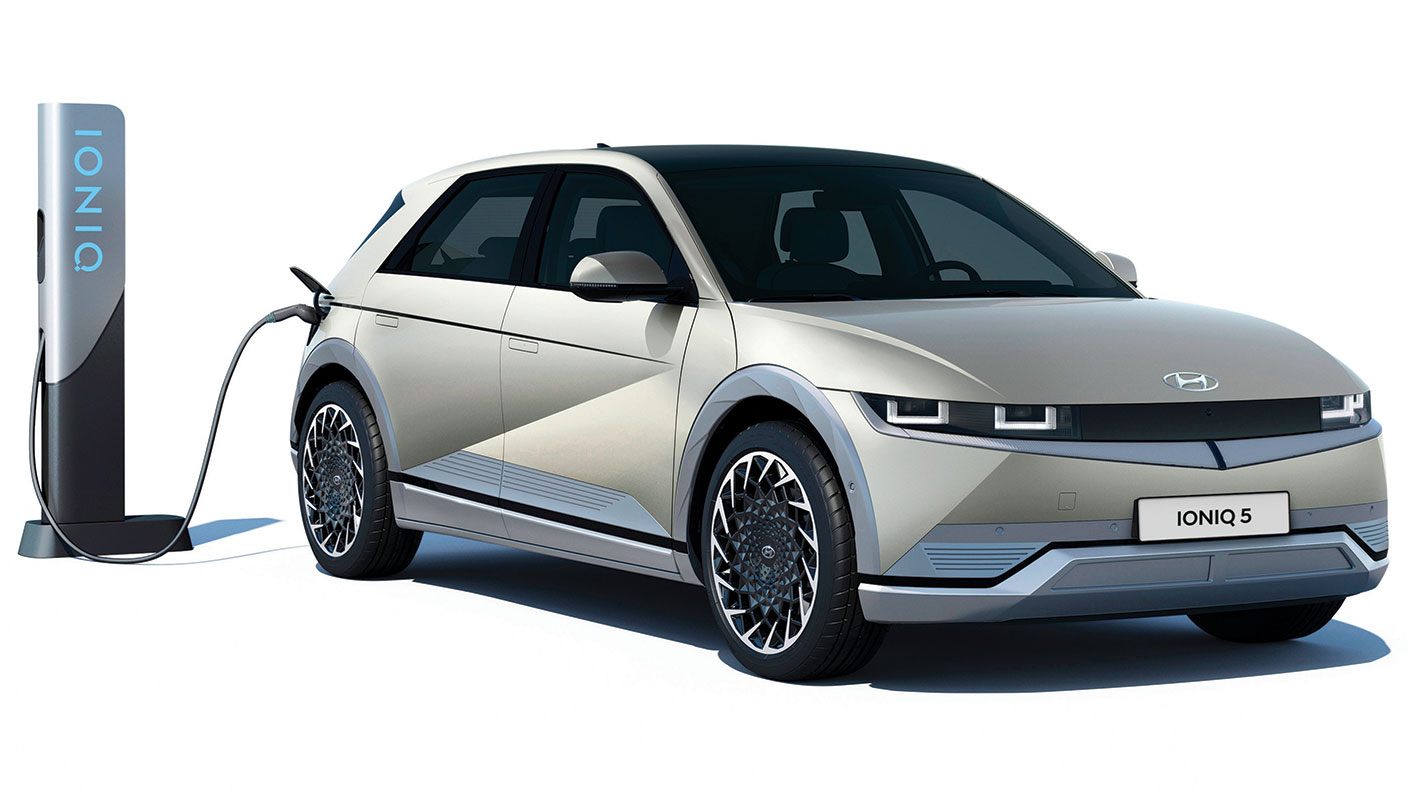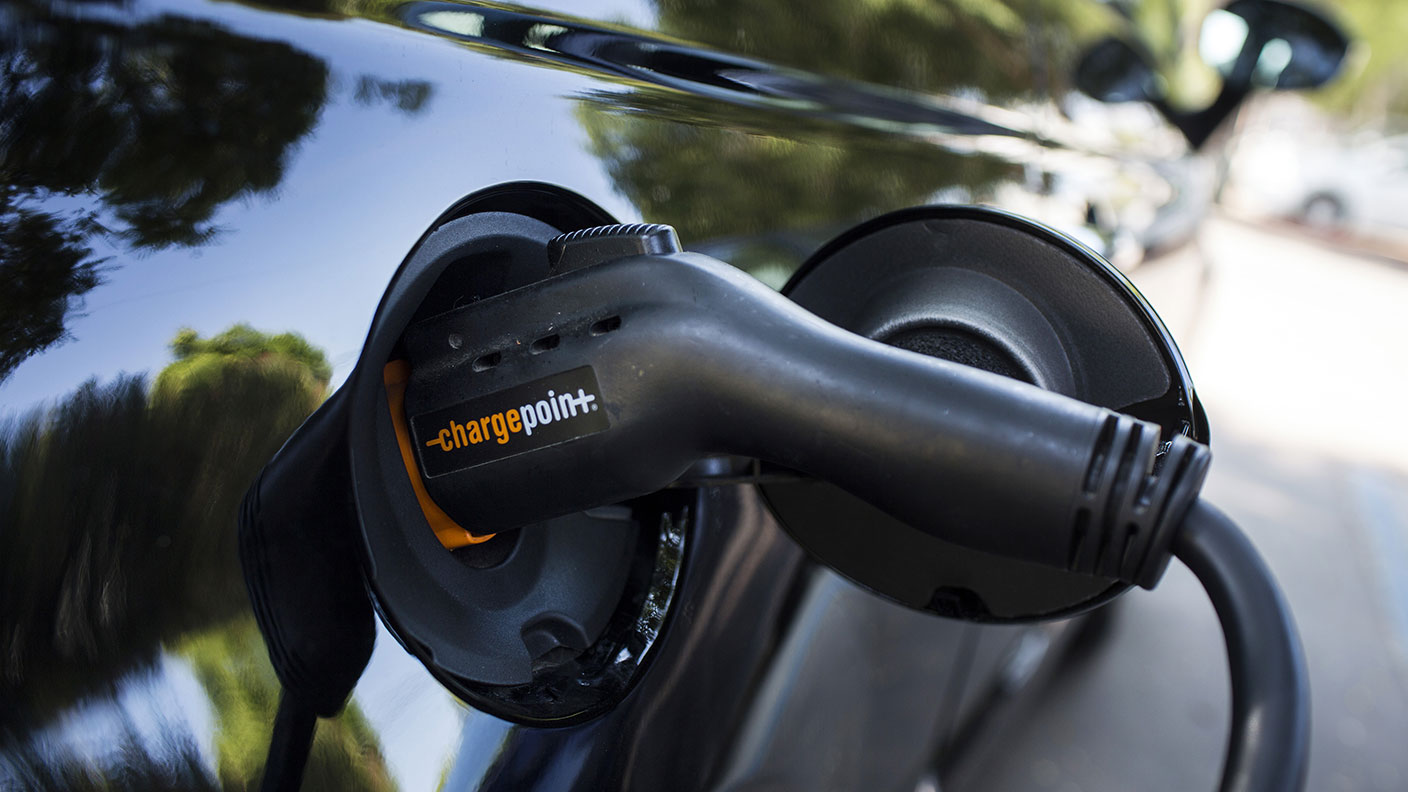VW and Ford join forces to develop electric cars
Car giants VW and Ford are pooling their resources to focus on electric vehicles and driverless cars. What are the odds of success? Matthew Partridge reports.

Get the latest financial news, insights and expert analysis from our award-winning MoneyWeek team, to help you understand what really matters when it comes to your finances.
You are now subscribed
Your newsletter sign-up was successful
Want to add more newsletters?

Twice daily
MoneyWeek
Get the latest financial news, insights and expert analysis from our award-winning MoneyWeek team, to help you understand what really matters when it comes to your finances.

Four times a week
Look After My Bills
Sign up to our free money-saving newsletter, filled with the latest news and expert advice to help you find the best tips and deals for managing your bills. Start saving today!
With "storms battering the global [car] industry", Ford(NYSE: F) and Volkswagen (Germany: VOW) "have significantly expanded" their global alliance, says Peter Campbell in the Financial Times. They have agreed to collaborate on electric vehicles and self-driving technology. The new venture will involve Volkswagen investing $2.6bn in Argo AI, the Ford-backed driverless technology start-up, in a deal that values the group at more than $7bn. Ford will also build a mass-produced electric vehicle in Europe using the German group's in-house development and manufacturing system for battery cars. The idea is to save money by avoiding duplicating investments.
A culture clash?
Ford and Volkswagen's "ambitious plans" to expand their alliance are already being "lauded", says Neil Winton for Forbes. However, there are also worries "that company culture might be a source of friction over the long term". Previous big car deals suggest that this factor is crucial. For example, Daimler's 1998 takeover of Chrysler "was described as a marriage made in heaven, but ended in 2007 after what were called cultural difficulties". Similarly, Opel and its Vauxhall sibling made "massive" losses with General Motors.
It's impossible to guarantee that any alliance will be successful, especially "in an era of rapid change", says Stephen Wilmot in The Wall Street Journal. However, the two companies have maximised their chances of success by agreeing not to exchange equity in each other, something that typically ends up becoming "a seemingly irresolvable source of tension" in many partnerships. They have also "carefully calibrated" the agreement, so that it "covers only specific areas of operation in which one side or the other needs a leg-up".
MoneyWeek
Subscribe to MoneyWeek today and get your first six magazine issues absolutely FREE

Sign up to Money Morning
Don't miss the latest investment and personal finances news, market analysis, plus money-saving tips with our free twice-daily newsletter
Don't miss the latest investment and personal finances news, market analysis, plus money-saving tips with our free twice-daily newsletter
The tie-up may be "one of the biggest events in the [car] industry in modern times", says Gary Vasilash on Autoblog. By using Volkswagen's electric-vehicle platform the two companies are trying to create "a standard for an electric-vehicle architecture". Similarly, having Volkswagen use Ford's artificial intelligence (AI) system in their cars will generate more data, enabling the AI to become "smarter and better".
Let's not get carried away, say Antony Currie and Liam Proud for Breakingviews. It's true that autonomous vehicles "can potentially reduce congestion and traffic-related fatalities, improve carmakers' margins and more". But working out how to value these outfits "is a quest in itself", especially since "no one knows when autonomous driving will take off and how much revenue it will earn". Even Argo AI's boss, Bryan Salesky, admits that "it will probably take several years for carefully circumscribed operations to get under way in more than a few cities", while broad adoption "is for long in the future". This makes it "hard to justify" the implicit valuation of $7bn that this deal gives Argo AI.
Get the latest financial news, insights and expert analysis from our award-winning MoneyWeek team, to help you understand what really matters when it comes to your finances.

-
 Should you buy an active ETF?
Should you buy an active ETF?ETFs are often mischaracterised as passive products, but they can be a convenient way to add active management to your portfolio
-
 Power up your pension before 5 April – easy ways to save before the tax year end
Power up your pension before 5 April – easy ways to save before the tax year endWith the end of the tax year looming, pension savers currently have a window to review and maximise what’s going into their retirement funds – we look at how
-
 The Stella Show is still on the road – can Stella Li keep it that way?
The Stella Show is still on the road – can Stella Li keep it that way?Stella Li is the globe-trotting ambassador for Chinese electric-car company BYD, which has grown into a world leader. Can she keep the motor running?
-
 'EV maker Faraday Future will crash'
'EV maker Faraday Future will crash'Faraday Future Intelligent Electric is failing dismally to live up to its name, says Matthew Partridge
-
 How to invest in the electric car market
How to invest in the electric car marketTips The vehicle sector suffered badly in the pandemic, and has since been buffeted by supply-chain problems, inflation and recession fears, says David J. Stevenson. But electric cars are thriving.
-
 Three stocks that will profit from electric-vehicle growth
Three stocks that will profit from electric-vehicle growthTips Professional investor Konrad Sippel of Solactive, index provider for the Electric Vehicle Charging Infrastructure ETF, picks three firms solving the electric-vehicle charging challenge.
-
Share tips of the week
Tips MoneyWeek’s comprehensive guide to the best of this week’s share tips from the rest of the UK's financial pages.
-
 VW shares are ready to motor – here's how to play them
VW shares are ready to motor – here's how to play themFeatures German carmaker VW is putting the emissions scandal behind it, says Matthew Partridge. Traders should go long.
-
Profit from a cleaner, greener future with electric cars
Features Electric cars have been a long time in the making – but now they could be set to take off as they are poised to go mass market. Eoin Gleeson looks at how you can profit.
-
How to cash in on the electric transport boom
Features The popularity of electric cars is on the rise, thanks to subsidies and high fuel prices. With a new generation expected to come to market in the next two years, Eoin Gleeson looks at how to make money from the sector and picks two stocks to spark your interest.